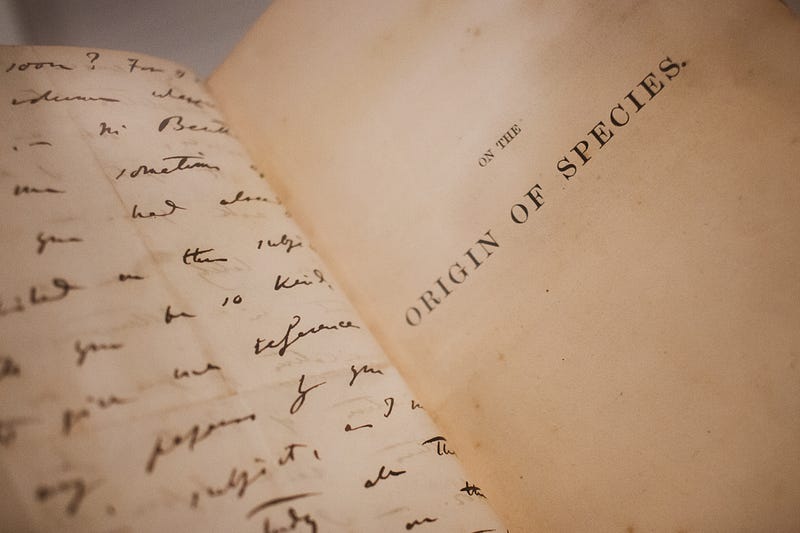Part 1 of a Discussion of Peter Foster’s Why We Bite the Invisible Hand Chapter 4 “Dark Satanic Minds”
Soon after capitalism was born a couple of hundred years ago, the anti-capitalist movement begins. Specifically, Foster discusses in this chapter Karl Marx and Friedrich Engels’ call for communism and lesser-known Robert Owen’s call for a utopian society.
We will cover Owen’s view of a perfect society in this blog. Some call his vision utopian socialism, but it is not socialism as we define it today. He did not call for the government to own the means of production, for example. Really, his vision was paternalistic with a benevolent leader in charge with everyone else complying.
Foster opens with a discussion of some of the key players in the industrialization of England. The Industrial Revolution started with the cotton industry.
In 1776, the year the Wealth of Nations was published, Richard Arkwright, the 13th son of a poor family from Preston in Lancashire and a one time wig maker, had just completed his second water-powered cotton mill at Cromford in Cheshire…(p. 84)
Arkwright turned to water power to run the new automated cotton spinning technology. That would limit such mills to being near water sources.
James Watt realized he could improve the efficiency of an engine he was repairing, so he formed a partnership with Matthew Boulton to develop his new invention. The resulting Boulton and Watt engine meant cotton mills could then be built in towns. (p. 85)
Without water for power, these engines were powered by coal. This led to one of the early obvious downsides of industrialization: coal dust and pollution.
It was in the shift of steam-driven mills to towns that most of the negative images of the Industrial Revolution were formed: of grimy back-to-back cottages; of dreadful sanitary conditions; of workers as cogs in a faceless and heartless profit-obsessed machine, working for subsistence wages in a world where they had no future. (p. 85)
Thus, the Industrial Revolution kicked off and the standard of living which had been stagnant for all of human history increased 50 times in 200 years.
And yet, even a dramatic improvement is problematic because it is a shock to the system. Life had been the same for generations and all of a sudden everything changes. Those grimy cottages, among other things, served as a target for those reeling from societal upheaval.
New Lanark
Arkwright developed another cotton mill in New Lanark, Scotland, with a partner, David Dale. After a falling out, Dale took control.
Robert Owen had worked himself into a position as a successful mill manager who then married Dale’s daughter. He took over New Lanark a few months after marrying her.
Like many industrialists at that time, he had an interest in education and social reform. He saw New Lanark as the place he could implement his vision. (p. 87)
Most of Owen’s employees were children from orphanages in Glasgow and Edinburgh. (p. 87) That is not sounding like Utopia — by our standards today, we would condemn his use of child labor.
However, like is still true today in poor countries, children working could be crucial for survival for themselves and their families. Orphans were in an even more dire situation.
Owen provided education and essentially daycare for those too young to work. As admirable as that may sound, it was also good business. He was increasing the skills and contentment of his young workers, which ultimately leads to higher productivity. (p. 88)
Indeed, humane treatment, and its perception as such by the employees, has always been a key factor in increasing productivity and thus profitability. Successful businessmen who contributed to their communities were never the exception. Go to any town that played a part in the Industrial Revolution and you will find museums, libraries, and parks endowed by capitalists. (p. 90)
I would prefer if people were called to the morality of loving their neighbor as the reason they are treating their employees and the community well, but yes, I acknowledge such behavior would also increase productivity.
Foster notes numerous successful businessmen of the era who pushed for policies and reforms to improve people’s lives so that Owen was not the exception. Here are a few: (p. 91)
- Sir Robert Peel promoted legislation to protect children in factories;
- Richard Cobden and John Bright pushed to abolish the Corn Laws that were protecting British landowners at the expense of higher food prices for the people;
- Titus Salt pioneered anti-pollution technology without any government regulations forcing it.
Another innovation Owen set up to help his workers would also be condemned by us today. He set up the village shop, which we would recognize as the company store.
He paid his workers “tickets for wages” that could only be used in his village shop. (p. 88) He claimed it was for their benefit as he used the shop’s buying power to get lower prices by buying in bulk. However, this is what big box stores do today resulting in smaller businesses not being able to compete.
Foster notes that Owen seems more like an enlightened capitalist than a true “Utopian dreamer.” (p. 89) Following Owen in his next steps shows an even darker interpretation.
New Harmony
Owen wanted to take his model and expand it into “villages of unity and co-operation,” but his proposals were rejected by Parliament. (p. 92). Many thought these just sounded like glorified workhouses, which were places poor people could live and work.
Others thought Owen’s plan revealed “disquieting authoritarian overtones,” and one person compared his villages to a slave plantation. (p. 93)
It sounds like the typical utopian plan to me: “Just put me in charge and let me design everything and force everyone to act in a certain way and it will all be perfect.”
Rejection from the UK Parliament just inspired Owen to move over to the US and set up New Harmony.
Unlike New Lanark that had a money-making cotton mill at its heart, New Harmony suffered from the usual problem of utopian communities where those who were most skilled bristled at sharing income equally with those who could not, or would not, work as hard. (p. 93)
Also, Owen explicitly rejected religion. A collectivist scheme like he proposed needed a religious zeal in the people to go along with the inequities. That, or they needed to be able to force people to comply. (p. 93)
His hostility to religion ended his next attempts to try again in Mexico. He requested land from the government to try his plans again, but he was not going to allow the practice of Catholicism. Mexico was not interested. (p. 94)
Owen staunchly opposed the “superstition” of religion, and yet his own views were at root profoundly religious, based on a “New Moral World” set up in opposition to a demonic set of greedy capitalists. He founded the Rational Society, complete with Halls of Science instead of churches and “social hymns.” (p. 95)
As a Christian, I know we were created to worship God. When we reject God, we will worship something else, often ourselves. The way to oppose “a demonic set of greedy capitalists” is with God. Anyone demonic is someone who has rejected God so you will not successfully fight them by also rejecting God.
Conclusion
Living through the Industrial Revolution would have been very disruptive to ordinary life. For centuries, people had lived and worked primarily as nearly self-sufficient economic units with a little trading.
The Industrial Revolution created the capitalist world that is normal for us today. We work for wages now, and we use them to buy everything we need. We are not growing and canning and sewing and doing all the other things people used to do to provide for themselves.
Social disruption will cause negative reactions naturally, but when you can point to examples of bad working conditions and pollution, it is easy to say this industrialization process is a bad idea. At the very least, there are naturally calls for reforms.
Yet, Foster notes improvements came as part of the process naturally, and not from reforms.
Conditions did gradually improve by a process that may have appeared to be led by social agitation and legislation, but in fact had a great deal more to do with the underlying surge of capital investment, productivity and sustained economic growth, which forced mill owners — benevolent or not — to compete for labor by increasing wages and improving conditions. However, it was obviously difficult if not impossible to see this long-term process at work amid the grime and squalor of early mill towns. (p. 92)
Robert Owen and the other utopians saw much that should be fixed. They rejected this competitive capitalism and the superstition of religion and set off to design a better world made in their own image.
Robert Owen represented a psychological type that would persist throughout the business world. Although such businessmen have a good grasp of their own business, they fail to understand the nature of markets more generally and believe themselves to be morally exceptional in a world marked by short-sighted greed. (p. 95)
Utopians like this seem more like cult leaders to me. He may have had good intentions, but in the end you had to live the way he said and act the way he wanted you to. Only then could we have Utopia on earth. And yet, it failed time and time again.
In the next blog, we will turn to Marx and Engel’s and their very dark reaction to capitalism.
Reference: Foster, Peter, 2014. “Dark Satanic Minds” Chapter 4 of Why We Bite the Invisible Hand, Pleasaunce Press.




